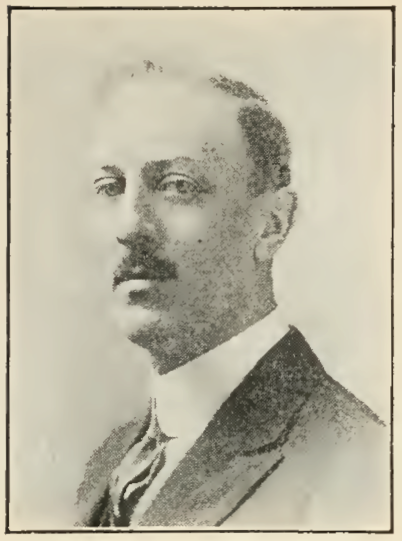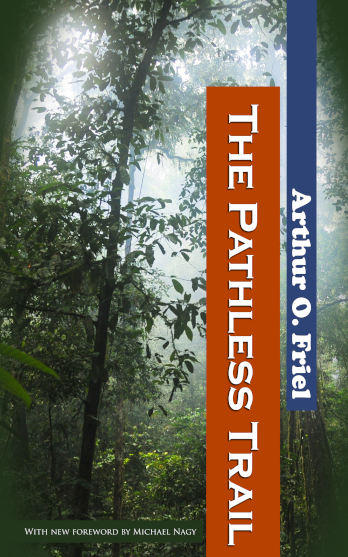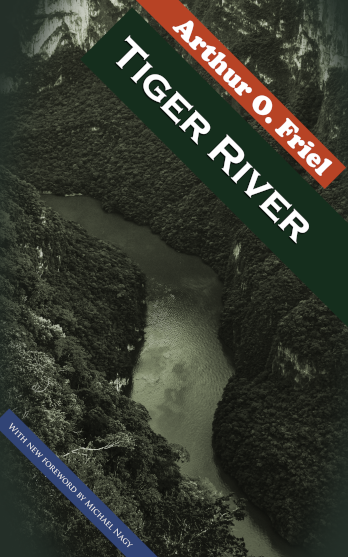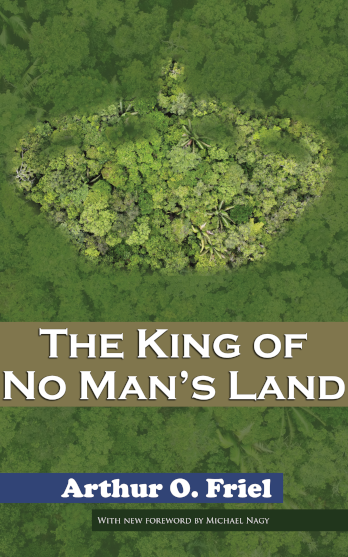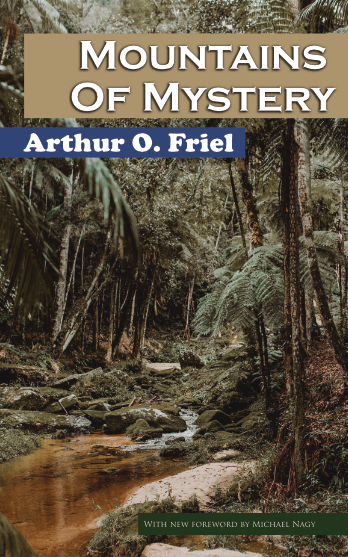Arthur Olney Friel (1887-1959) was the South American editor for the Associated Press, which fueled his interest in the region. In 1922, he embarked on a real-life expedition, a six-month journey up the Venezuelan Orinoco River and its tributary, the Ventuari River. A 3,200 km² (1,200 sq. mi.) region where those two rivers meet was preserved in 1978 as the Yapacana National Park. His personal adventures inspired the tales that he wrote, and all the practical details of exploring (making camp, finding potable water, negotiating with indigenous tribes) carry the clear ring of conviction.
Friel was also a skilled storyteller; he knew how to flow from one incident to the next, how to put in enough description to set the stage without bogging the story down, how to hint at what a character is thinking without spelling it out.
Autobiography
“When I wrote my first piece for the printer, it was a hunting tale. I had entered high school, and somehow the editor of the school magazine heard of me and cajoled me into writing a story. It was published as it stood. So, at the age of fifteen, I had broken into print.
“The next year, in another school (I was in four different high schools before reaching college) I wrote more stories, outdoor tales, all. It became a habit. The climax came when I drifted back to New Hampshire, and, entering the Manchester High School as a senior, was speedily appointed editor-in-chief of a newly-created school magazine.
“The Red Gods of old Kearsarge Mountain stood nobly by me then. I had returned to them many a time in the long summer vacations, as well as in the snowbound winter ; and in my hour of need they came and whispered things that filled my blank pages with vivid yarns. When school days ended I paid them their just tribute. I went back among them for another summer, living alone in the wilderness, and listening to their wise precepts. My friends called me crazy for living thus alone. But they did not understand. They did not know my gods.
“From the forests I emerged at length to enter Yale. Summer newspaper work followed, and for years I saw little of my mountains. Then, having attained my degree, I returned again to the gods of the wild, finding their simple welcome and serene wisdom unchanged. And now, for the first time, they told me to write–to write of Kearsarge.”
[Brief biographies of some well-known authors and illustrators, Philadelphia: The Penn Publishing Company, 19uu, OCLC 505957014, OL 24161991M, p.34]
